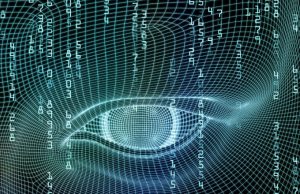
Colloquially, the term Artificial Intelligence (AI) is used when a machine is able to mimic some “cognitive” functions that humans associate with other human minds, such as “learning” and “problem solving”. In other words, any device that perceives its environment and acts to maximise its probability of success at some goal is AI. From SIRI of iPhone to self-driving cars, AI is progressing rapidly such as Virtual Personal Assistants, Video Games, Smart Cars, Purchase Prediction and Fraud Detection. It can encompass anything from Google’s search algorithms to IBM’s Watson to autonomous weapons.
Potential for AI in India
Indian consumers are the biggest beneficiaries of recent advances in AI. From utilising various AI powered applications to using a range of online services such as Amazon Marketplace and Netflix that learn from consumers’ online behaviour to make intelligent product and service recommendations, consumers are readily engaged with the proliferation of AI in India.
India needs to adopt some innovative instruments to prepare itself for the challenges from a machine intelligence-driven economy in the near future. This technology has wide popularity within the group who deal with robotics, as this, when embedded into robotics gives the robots the power of realisation and precision, accuracy in any field of work.
In our country, Artificial Intelligence is taught as a part of robotics. National institutes like IIT and IISC give the best exposure to the technology by teaching it in Masters Degree of Robotics. Many private institutions provide a certified course on Robotics and Artificial Intelligence Technologies. Some private institutions have tie up’s with foreign universities for teaching applied artificial intelligence in Robotics.
There’s a lot of scope for AI in India. This technology is responsible for accurate working of following systems:
• Remote rocket launching
• Remote Missile launching
• Remote and precision rocket tracking
• Remote and precision Missile tracking
• Pre-launch simulation and analysis of whether missile or torpedo will hit the target or not.
AI’s impact on Indian jobs
While India dreams of its own manufacturing revolution through “Make in India” programme, it is important for policymakers to closely examine how the advent of industrial robots and their impact on manufacturing transformed companies in other developing nations.
While the dire predictions of a robot takeover of manufacturing have not come to pass, the reality of automation is that manufacturing is unlikely to create jobs at the scale that it did in the past as jobs will decline over the next decade in manufacturing and information technology among other sectors.
Frank Levy, professor emeritus at the Massachusetts Institute of Technology, places jobs dislocation on account of AI in perspective when he dismisses the dire projections of a robot takeover. Levy feels, policymakers ought to be the impact of AI on jobs in the—assembly line workers, clerical workers, and the like. Levy also warns of significant dislocation caused by automation leading to a reduction in an individual’s potential for upward mobility. He emphasises that a good education will be critical to acquire the necessary skills and to be competitive in this evolved labour market.
A key recommendation of particular importance for India, given the “Start-up India” initiative, is the need to “restart start-ups”. There is creative destruction present within the start-up economy as the best bet to experiment with the new jobs and industries that thrive in an AI-driven economy.
Policymakers, however, lag behind as they are unable to exploit AI for national security, public services, or other fields. This has proven to be a challenge for the Indian academics, public researchers, labs and entrepreneurs.